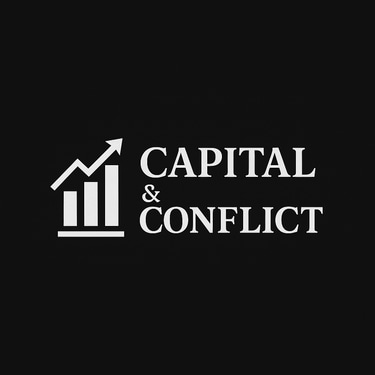France’s Snap Election Backfires: What It Means for Markets, Policy, and European Power
MACROECONOMIC
Fatima Umer Madani
7/31/20253 min read


In June 2024, the President of France, Emmanuel Macron, took the highly unusual step of dissolving the National Assembly and calling early parliamentary elections. This announcement came just hours after his centrist political party, Renaissance, suffered a heavy defeat in the European Parliament elections. President Macron described the decision as a necessary democratic response, stating that France needed clarity and political renewal.
Instead, the result has been political fragmentation, mass protests, and growing economic anxiety. The elections produced no clear majority in parliament, and France, the second-largest economy in the European Union, now finds itself in a prolonged state of political paralysis.
A Divided Parliament and an Uncertain Future
The first round of voting took place on 30 June 2024, followed by the second round on 7 July. The far-right political party known as National Rally, led by Marine Le Pen and her protégé Jordan Bardella, emerged as the frontrunner in the first round. However, the second round saw a coordinated effort by President Macron’s centrist candidates and a newly formed alliance of left-wing parties, called the New Popular Front, to prevent the far right from gaining control of the National Assembly.
This strategy, known in France as the Republican Front, was partially successful. National Rally did not achieve an outright majority, but the outcome left the parliament split between three major political groups: National Rally, the New Popular Front, and the weakened centrist alliance of President Macron.
With no group able to form a stable governing coalition, the parliament is now effectively gridlocked. Political negotiations continue without resolution, and the French public has taken to the streets in large-scale protests against the rise of the far right.
Economic Tensions and Market Reactions
Financial markets responded quickly to the uncertainty. The CAC 40 index, which tracks the performance of France’s largest companies, dropped by nearly four percent following the announcement of the early elections. Investors also became more cautious about French government bonds. The cost of borrowing for the French government increased significantly, as investors demanded a higher return for holding French debt instead of more stable German bonds.
France’s economic indicators were already showing signs of strain before the election. Public debt currently stands at one hundred ten point six percent of Gross Domestic Product, and the budget deficit reached five point five percent last year. Economists and European policymakers are now raising concerns about whether France will be able to pass a national budget that complies with European Union rules.
Proposals from the political left have added further uncertainty. The New Popular Front has pledged to increase the minimum wage, freeze the prices of essential goods, and reverse the government’s recent pension reforms. Finance Minister Bruno Le Maire described these plans as unaffordable and warned they could undo years of job creation and industrial growth.
Meanwhile, the economic proposals of National Rally remain vague but include nationalist policies that could weaken France’s cooperation with international financial partners. Economists from Rabobank and Berenberg Bank have stated that both political extremes pose risks to investor confidence and France’s financial credibility.
Implications for the European Union and Global Leadership
France’s domestic political crisis has implications for the wider European Union. With the United Kingdom no longer a member of the European Union and Germany dealing with its own economic and political challenges, France was expected to play a leading role in shaping the future of the continent.
That leadership is now in doubt. Both National Rally and the New Popular Front include parties and individuals who are skeptical of the European Union, critical of France’s involvement in the North Atlantic Treaty Organization, and cautious about continued support for Ukraine.
Without a functioning government in Paris, the European Union may struggle to respond effectively to international crises. France’s weakened position could also embolden anti-establishment movements across Europe.
A Risky Political Gamble with Lasting Effects
President Macron called the early elections to give France a clearer political direction. Instead, the country now faces deeper divisions, greater uncertainty, and an unstable parliament. There is no clear path forward, and the risk of long-term political stagnation is growing.
For global investors, analysts, and political observers, France has become a case study in how democratic institutions can falter under pressure. The collapse of the political centre, the rise of extreme parties, and the failure to form a functioning government are no longer distant concerns, they are happening at the heart of Europe.
As France navigates this uncertain period, the decisions made in the coming months will shape not only its own economic recovery but also the future direction of the European Union and its role on the global stage.
Insights
Exploring political risk and financial market impacts. This is not financial advice.
Analysis
Trends
© 2025. All rights reserved.
